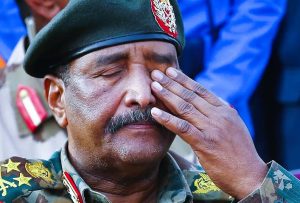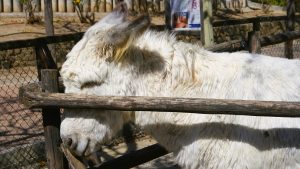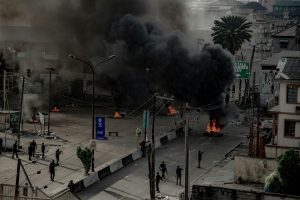Nigeria denies colluding with France to destabilise Niger
3 min readNigeria has strongly rejected accusations from Niger’s military leader, Brigadier General Abdourahmane Tchiani, who claimed that Nigeria was colluding with France to destabilize his country. In a Christmas Day interview, Tchiani accused France of collaborating with militant groups in the Lake Chad region to undermine Niger’s security, and suggested that Nigerian authorities were complicit in these efforts.
Tchiani’s accusations claimed that Nigeria was aware of this alleged partnership. “Nigerian authorities are not unaware of this underhanded move,” Tchiani was quoted saying by the French news agency AFP. This statement has fueled further diplomatic tension between the two nations, already strained by Niger’s military coup in 2023, which ousted the democratically elected president Mohamed Bazoum.
In response, Nigeria’s National Security Adviser, Nuhu Ribadu, dismissed the allegations as “baseless” and “false.” Speaking to BBC Hausa, Ribadu insisted that Nigeria would never conspire to destabilize Niger or allow harm to come to its neighbor. “Nigeria will not sabotage Niger or allow any disaster to befall it,” Ribadu emphasized.
Additionally, Nigeria’s Information Minister, Mohammed Idris, condemned Tchiani’s accusations as a diversionary tactic aimed at deflecting attention from the challenges faced by the Nigerien junta. Idris called the allegations “unfounded” and argued that they existed “solely in the realm of imagination.” He further denied accusations that Nigeria had sabotaged Niger’s pipeline or agriculture, which had also been mentioned by Tchiani.
Tchiani’s accusations come at a time of heightened diplomatic tension between Niger and Nigeria, following the 2023 coup in Niger. The military junta that seized power in Niger has been at odds with regional bodies like the Economic Community of West African States (ECOWAS), which is led by Nigeria’s President Bola Tinubu. ECOWAS imposed economic sanctions on Niger after the coup, demanding the restoration of constitutional order, and even threatened military intervention to reinstate democratic governance.
In response to Tchiani’s claims, ECOWAS issued a statement on Thursday, refuting the suggestion that Nigeria was involved in any efforts to destabilize Niger. ECOWAS underscored Nigeria’s long-standing commitment to peace and security in West Africa and beyond. “For years, Nigeria has supported peace and security in several countries not only in the West African subregion but also on the African continent,” the bloc said in its statement, adding that it refutes any suggestion that Nigeria could be a sponsor of terrorism.
The diplomatic dispute has intensified since the coup, with Niger seeking closer ties with its military-led neighbors, particularly Mali and Burkina Faso, both of which have also experienced military takeovers. These nations have formed a security alliance, and Niger has called for the withdrawal of France and other Western military forces stationed in the region. Tchiani’s government sees these foreign military presences as a threat to Niger’s sovereignty and stability.
Tchiani’s allegations have further complicated an already difficult situation, with the military junta in Niger increasingly isolated from the West. In contrast, ECOWAS has maintained its stance in favor of democratic restoration and regional stability, even as Niger seeks to distance itself from Western influence.
Two weeks prior to Tchiani’s interview, ECOWAS had approved the withdrawal of military representatives from three countries, including Niger, after these nations refused to restore democratic rule. The growing divide between the military junta in Niger and regional actors such as ECOWAS underscores the complex political landscape in West Africa.
The allegations of Nigerian collusion with France serve to heighten tensions, but they also reflect the broader geopolitical shifts occurring in the region. While Nigeria remains firm in its rejection of Tchiani’s claims, the situation remains volatile, with both Niger’s junta and regional powers like ECOWAS navigating competing interests and alliances in a bid to shape the future of West Africa’s political and security landscape.
As tensions persist, Nigeria and Niger face a delicate diplomatic balancing act. The accusations may only deepen divisions, but they also shed light on the wider regional contest for influence and control over security arrangements in the Sahel region.





